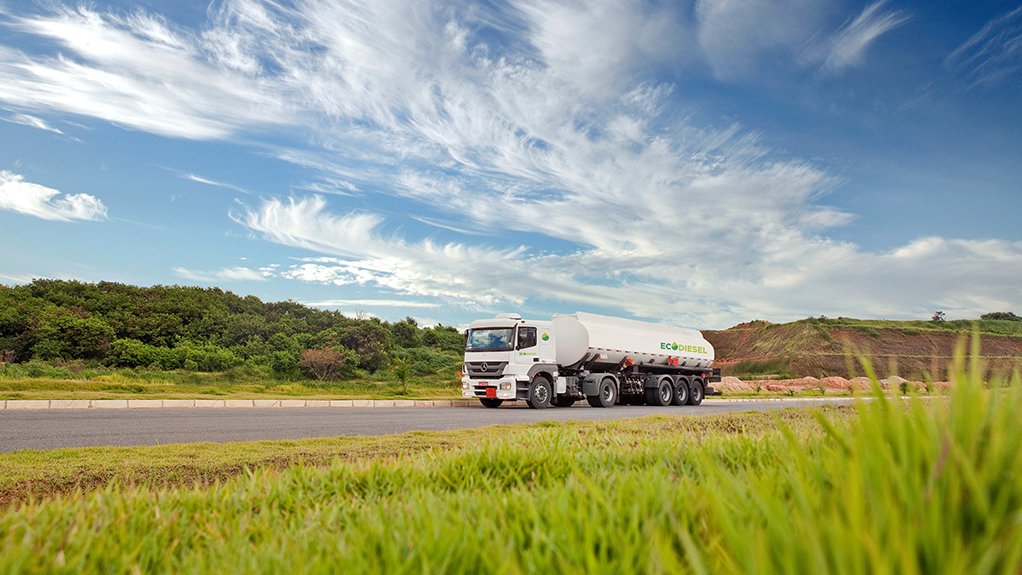Women-owned biodiesel distributor EcoDiesel believes that the solution to South Africa’s current need for an alternative energy source that is efficient, recycles waste and takes care of the environment, is biodiesel.
“Crude reserves, global price volatility and environmental impact issues have been a cause for concern for decades,” says EcoDiesel CEO Michelle Geere.
She suggests that, in light of the situation, the automotive industry has responded by finding manufacturing solutions to the environmental problem, while energy companies have passed on the costs to consumers.
However, this makes crude-based products increasingly expensive.
“Firstly, driving cars that use heavier fossil fuels will soon be unaffordable. Secondly, for the industry, generators, transport vehicles and other machinery running off diesel will become one of the biggest expense items on the balance sheet.”
Geere points out that the cost of crude-based products will be responsible for driving up the cost for the end-user considerably. She explains that food, clothing, basically all consumables that need transportation, will become more expensive.
Biodiesel is a renewable, clean-burning diesel replacement that can be used in existing diesel engines without modification.
Biodiesel burns cleaner and cooler in engines, and is made entirely from used vegetable oil, a waste product. This makes biodiesel a biodegradable product that is more environment friendly.
“It can be produced locally, which means that the cost of production is not dictated by crude oil imports, only by the amount of fried food South African’s eat,” says EcoDiesel director Dr Karabo Sitto.
She mentions that with an accessible alternative energy solution readily available, the biggest barrier to use lies in the lack of regulatory and motor industry support for biodiesel.
Motor manufacturers do not currently include biodiesel use in the warranty of their vehicles. Manufacturers will continue supporting crude oil products until there is pressure from the government and consumers to consider alternative options, she suggests.
EcoDiesel is currently lobbying the Department of Mineral Resources and Energy and working with local biodiesel producers to increase demand for quality of biodiesel locally.
“This dynamic all-women team insists that education of the public will create demand, as consumers have little knowledge and no choice currently for fuelling up,” Sitto maintains.
Without a change soon, transport and food costs will continue to rise for consumers, adversely affecting families and communities, especially the most vulnerable in society.
“EcoDiesel believes that by producing biodiesel locally, the company can contribute to driving the cost of transport and food down, while saving the planet for future generations,” concludes Sitto.
Edited by: Zandile Mavuso
Creamer Media Senior Deputy Editor: Features
EMAIL THIS ARTICLE SAVE THIS ARTICLE
ARTICLE ENQUIRY
To subscribe email subscriptions@creamermedia.co.za or click here
To advertise email advertising@creamermedia.co.za or click here













